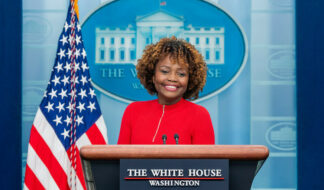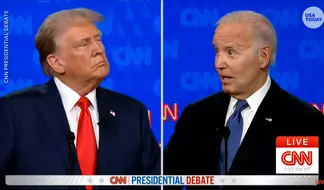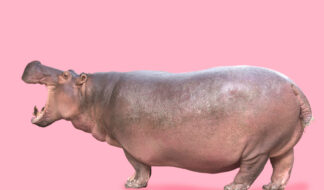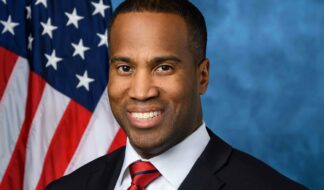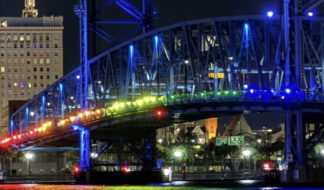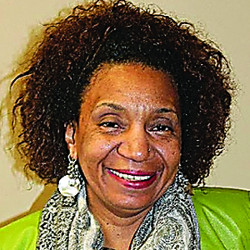
I'm always surprised by the reactions of people when I tell them I have been (more than once) to the Michigan Women's Music Festival.
Most often the response is either, "You went?" "You camped?" or, after thinking about me/my life while shaking their head, "Of course, you would go!" Then the real questions begin – were there many black women there? You slept in a tent? Did you get naked? But most often, the question asked is why I, a self-proclaimed lover of all things urban who considers "roughing it" staying at a hotel without room service, would go the Michigan Women's Music Festival. My response generally involves telling the story of my first MWMF!
I went primarily because Shea Howell was going. Everyone has one of those friends who they would follow anywhere, who strongly impacts their life and who they straight-up, unashamedly, unconditionally love. Shea is my person. The Meredith Grey to my Cristina Yang, you might say. We've worked on many things together. We marched together. We summered together. So when she said I needed to go to the festival, I was ready.
Shea and the rest of our group went up before I did earlier in the week. I was supposed to drive up with a mutual friend on the weekend who had attended before and knew the location of the spot Shea et al. camped at every year. The festival is on over 600 acres; I needed a guide.
That Friday, when we were supposed to leave, my guide was nowhere to be found. Made a few calls and discovered that she had left without me. Undaunted, I threw my gear into the car and headed toward Hart – a little cranky, but I had plenty of time to get there before dark.
When I arrived, culture shock kicked in. I was a "Festie Virgin." I had no idea where Shea was camped, and I had all this junk to lug across a huge parking lot into the woods and I didn't know where I was going!
I walked and as I walked, I got angry. Angry at my guide who had left me and angry at myself, but then the magic of "The Land" began. Women came up to see what was wrong. They took my bags. They set about finding my friends. They comforted me and made me feel welcome. I was part of the sisterhood.
We came from different socio-economic classes. I was African-American while most of them were white. We had each experienced patriarchy, but many of them had also experienced a privilege I never would because of their race. But on "the Land" it didn't matter – we were all womyn/sisters.
They didn't just drop me at the campsite and forget about me. They checked in on me, helped me navigate the showers, pathways and workshops. We danced naked under the moonlight.
That weekend and at the other festivals I attended in later years, I learned what it was like to be in a space created by, for and about women. It was empowering.
After I tell people about my first trip, I go on to tell them about the women who build everything! The women who not only make sure the land is handicap accessible but help women with disabilities experience the festival fully – pushing wheelchairs, getting meals, etc.
I tell them about the marvelous feeling of walking clothed or naked amongst your sisters, feeling truly beautiful just as you are with no "body shaming." I tell them about the acceptance and respect for each other and different lifestyles. And how being in this space opened my eyes and helped me evolve as a person of color, a woman and a lesbian – to think differently, to challenge patriarchy and to, more than ever, stand in my truth.
I had experienced a freedom that every girl/woman should have the opportunity to experience in their life – a freedom that can gird us for the fight that continues for full equality. However, it was because of the lessons learned that I stopped attending.
The lessons you learn on "the Land" go home with you, some short-term while others for a life time. It was during these years that my LGBTQ family increased as I met and became friends with many transgender sisters and brothers. One day while having coffee with a friend, she said, "I just want to be accepted as me. You have no idea what it's like to be judged by how you look."
I thought back to that day wandering around in the woods. Someone could have looked and seen this angry black woman wandering about, turned and walked away. Instead, they saw our commonality, our womanhood, our humanity.
When I arrived on "the Land" I was welcomed as a woman with the understanding that my path to womanhood was unique, but we shared a humanity.
We were different, yes. My path had been different from my Trans Sister, but here we sat sisters in struggle. Here was a member of my community facing the challenges in our woods of oppression, trans-phobia and discrimination. Her safety, her protection, her equality was on the same path as mine. We — all of us in the LGBTQ community — are on that path.
The times they are a changing. We know that gender is more than chromosomes. More of our children are declaring that they are transgender at an earlier age. Too many of these children are dying often at their own hand because we are still defining masculine and feminine by what's between their legs.
We are one community – LGBTQ – still discriminated against, still under attack. It's time we have dialogue on the core values our community will embrace for ourselves, our children and generations to come that must include respect for our diversity and inclusiveness for all members of our community.
I was deeply saddened to hear this is the last Michigan Women's Music Festival. It has changed hearts, minds and lives. It provided a transformative space for women to grow as women where we can find and live our truth. Strong, empowered women can not only change the world but also the boys/men who live in the world. The loss of this space and its potential for transformation, growth and change is a loss to our entire community.

